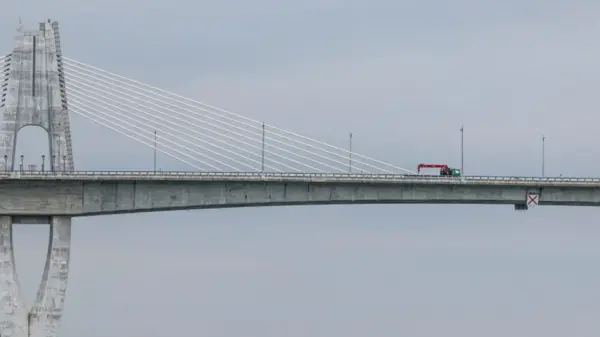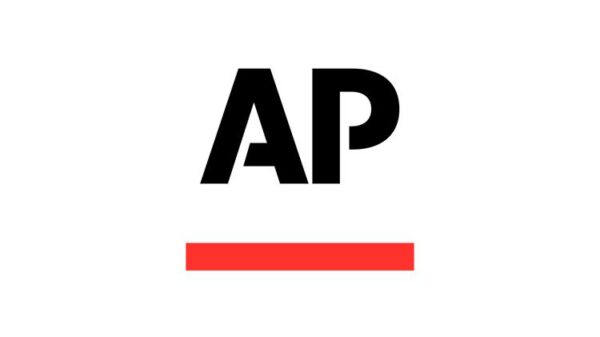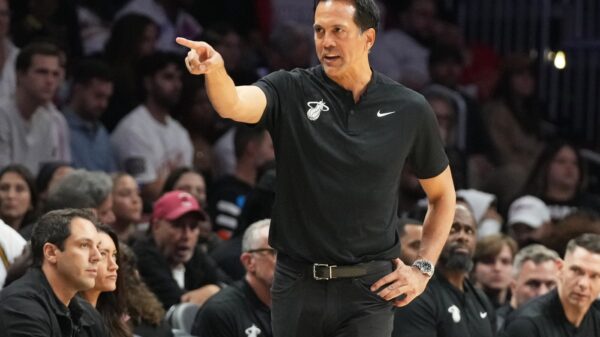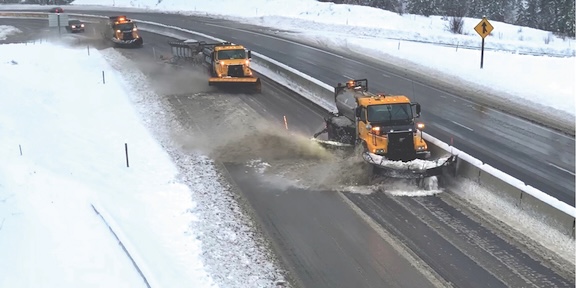A bill aimed at funding road maintenance and preventing significant layoffs at the Oregon Department of Transportation has passed the Oregon House. This decision was made on September 3, 2023, with a narrow vote of 36-12, primarily along party lines. The legislation arrives more than two months after a similar proposal failed during the last moments of the regular legislative session.
The approved measure represents a critical component of a larger ten-year plan that seeks to generate approximately $4.3 billion through tax and fee increases. The Senate is expected to review and vote on the proposal later this week, marking a pivotal moment for Oregon’s infrastructure funding.
Democratic lawmakers, who control all branches of government, agreed to implement a temporary payroll tax increase to support public transit. While the current proposal is significantly less ambitious than earlier plans, proponents view it as a necessary step to maintain essential services. Representative Mark Gamba, a Democrat from Milwaukie, described the bill as a means to “keep the lights on,” but emphasized that it does not represent a long-term solution for Oregon’s transportation challenges.
Key Changes Proposed in the Transportation Package
The transportation tax package includes several notable changes to existing fees and taxes.
One major aspect is an increase in the gas tax from 40 cents to 46 cents, effective January 1, 2026. This change is projected to generate around $90 million annually, with funds distributed among state and local governments.
Additionally, the proposal calls for an increase in annual vehicle registration fees. These would rise from $43 to $85 for passenger vehicles, and from $63 to $105 for utility vehicles and other classifications. Also included is a hike in title fees for passenger vehicles, moving from $77 to $216.
Crucially, the payroll tax that supports public transit would double from 0.1% to 0.2% until January 1, 2028. For electric and highly fuel-efficient vehicles, registration surcharges would increase from $35 to $65 for vehicles achieving over 40 miles per gallon, while the surcharge for electric vehicles would rise from $115 to $145.
The proposal also outlines a phased implementation of a mandatory road usage charge program for electric vehicles by 2031. This would require electric vehicle owners to participate in the existing OReGO program or pay a flat fee of $340 annually.
Representative Susan McLain, a key architect of the previous unsuccessful transportation package, characterized the latest proposal as a “pragmatic budget” designed to uphold vital infrastructure. She highlighted the broad support from local councils across Oregon, stating that the additional funding is crucial for communities statewide.
Mixed Reactions from Lawmakers
The passage of the bill required a minimum of 36 votes in the House, and the final tally reflected a largely partisan divide. Yet, there were notable exceptions. Representative Cyrus Javadi, a Republican from Tillamook, joined the Democrats in support, while Representative Annessa Hartman, a Democrat from Gladstone, opposed the measure alongside her Republican colleagues.
Javadi acknowledged the pushback from constituents against tax increases but argued that the need for safe roads and reliable services outweighs immediate concerns about costs. He recounted receiving numerous calls from constituents urging him to vote against the tax increases, yet asserted that preserving jobs and infrastructure was paramount.
On the other hand, Hartman expressed concern for working families in her district who face tough financial decisions, including whether to prioritize vehicle registration over basic necessities. She emphasized the importance of representing those constituents in the legislative process.
House Republican Leader Christine Drazan presented a significant volume of feedback from the public, noting that 94% of written testimonies opposed the transportation proposal. She underscored the importance of listening to constituents’ voices during the debate.
Conversely, Representative Paul Evans, a Democrat from Monmouth, stressed the urgency of addressing the state’s transportation needs. He likened the situation to a medical emergency, urging immediate action to prevent further deterioration of the transport infrastructure.
As the Senate prepares to consider the bill, the debate over transportation funding remains a pivotal issue for Oregon, with significant implications for the state’s infrastructure and public services. The outcome will determine how Oregon navigates the challenges of maintaining its roadways and supporting public transit for years to come.





































































